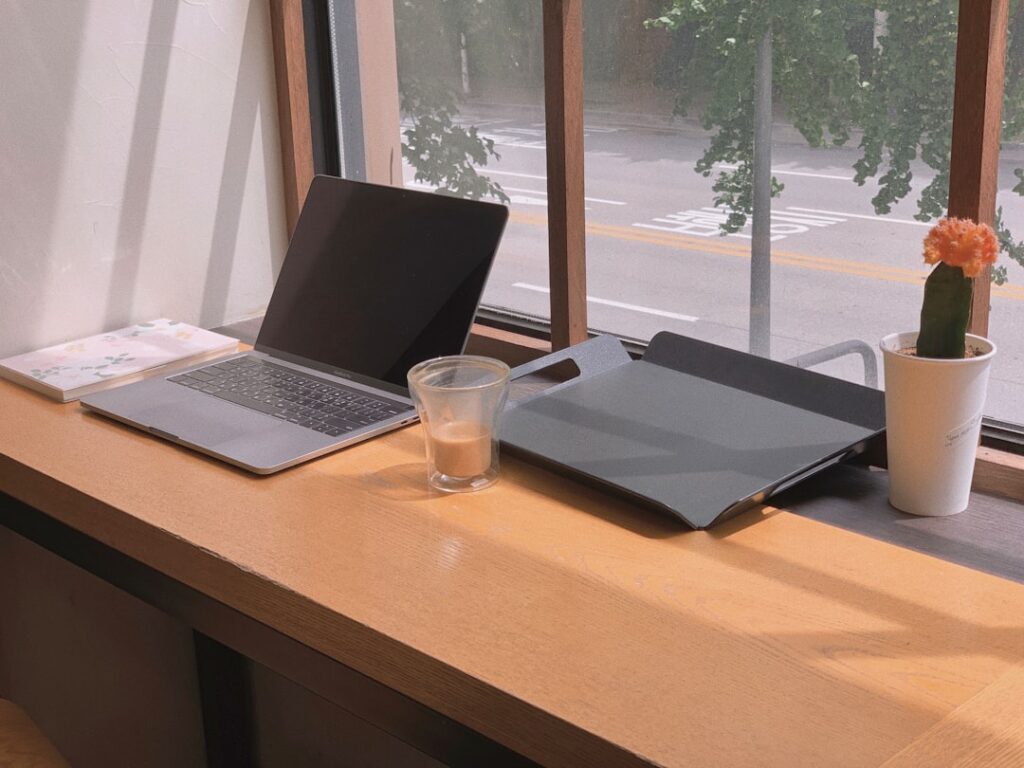The Midday Slump: Why Your Body Feels So Tired by Noon
Do you ever hit a wall around 1 or 2 PM, feeling an overwhelming urge to nap, struggling to concentrate, and finding your motivation plummeting? You’re not alone. This pervasive feeling of being utterly exhausted by noon, often referred to as the “midday slump” or “post-lunch dip,” is a frustrating reality for millions. It sabotages productivity, dampens mood, and leaves you wondering why your body feels so tired despite a full night’s sleep or a seemingly healthy morning. Understanding the core midday fatigue causes is the first step towards reclaiming your afternoons and sustaining your energy throughout the day.
This isn’t just about feeling a little sleepy; it’s about a significant drop in cognitive function and physical vitality. Imagine being fully engaged in a crucial task, only to have your brain suddenly switch to autopilot, leaving you staring blankly at your screen or struggling to articulate your thoughts. This article will delve into the often-overlooked culprits behind this energy drain and, more importantly, equip you with five surprisingly effective, science-backed strategies to not only combat the slump but to thrive through your entire day.
The Ubiquitous Midday Slump: More Than Just “Lunch Coma”
The midday slump is a widespread phenomenon, characterized by a decrease in alertness, cognitive performance, and energy levels that typically occurs in the early to mid-afternoon. While it’s easy to blame a heavy lunch, the reality is far more complex. This dip impacts everything from our ability to focus on complex tasks to our patience in interactions and even our physical stamina for afternoon workouts. It’s a significant barrier to sustained productivity and overall well-being, often leading to increased reliance on quick fixes like excessive caffeine or sugary snacks that only offer temporary relief before an inevitable crash.
Why does it matter so much? Because consistent midday fatigue can lead to reduced work quality, missed deadlines, impaired decision-making, and increased stress levels. For students, it means struggling to absorb new information in afternoon classes. For professionals, it can translate to an inability to perform at peak capacity when it matters most. Over time, this chronic pattern can contribute to feelings of burnout and dissatisfaction with one’s energy levels and performance.

Unpacking the Midday Fatigue Causes: Beyond Simple Sleepiness
While inadequate sleep is an obvious culprit for feeling tired, many people experience the midday slump even after a good night’s rest. The truth is, several interwoven physiological, lifestyle, and environmental factors contribute to why your body feels so tired by noon.
Physiological Contributors to Your Afternoon Energy Crash
- The Circadian Rhythm Dip: Our bodies have an internal clock, the circadian rhythm, which regulates sleep and wakefulness. Naturally, there’s a dip in alertness and core body temperature between 1 PM and 3 PM, irrespective of food intake. This is why many cultures embrace a siesta. A study published in Frontiers in Neuroscience (2019), reviewing the mechanisms of the post-lunch dip, highlights how this natural biological rhythm, combined with digestion, significantly contributes to afternoon grogginess.
- Blood Sugar Rollercoaster: What you eat (or don’t eat) for breakfast and lunch plays a massive role. Meals high in refined carbohydrates and sugars cause a rapid spike in blood sugar, followed by an equally rapid crash, leaving you feeling sluggish and fatigued. This “sugar crash” can mimic extreme tiredness.
- Dehydration: Even mild dehydration can significantly impact energy levels and cognitive function. Our brains are 75% water, and when fluid levels drop, so does our ability to focus and maintain energy.
- Lack of Movement: Prolonged sitting decreases blood flow, reduces oxygen to the brain, and can make you feel more sluggish. Our bodies are designed to move, and sedentary behavior actively works against sustained energy.
- Chronic Stress and Cortisol Levels: Persistent stress keeps your body in a “fight or flight” mode, constantly releasing cortisol. While cortisol initially boosts energy, chronic elevation can dysregulate the system, leading to adrenal fatigue and a noticeable energy drop when levels naturally decrease in the afternoon.
Lifestyle & Environmental Factors Fueling Midday Tiredness
- Poor Sleep Quality (Not Just Quantity): You might be getting eight hours, but is it restorative sleep? Factors like sleep apnea, restless legs, or even inconsistent sleep schedules can severely diminish sleep quality, leading to residual fatigue that manifests as a midday slump.
- Nutrient Deficiencies: Low levels of key nutrients like iron (anemia), B vitamins (essential for energy metabolism), or Vitamin D can profoundly affect energy production and contribute to persistent tiredness.
- Environmental Stimuli: Spending too much time indoors under artificial lighting, especially fluorescent lights, can disrupt your natural circadian rhythm. Lack of fresh air and poor ventilation can also contribute to a feeling of lethargy.
Consider the case of Alex, a 34-year-old marketing manager. He eats a large, pasta-heavy lunch at his desk, then returns to his windowless office for another four hours of intense computer work. By 2:30 PM, Alex finds himself struggling to keep his eyes open, making careless errors, and reaching for another coffee. His problem isn’t just one factor; it’s a combination of a carb-heavy meal causing a sugar crash, prolonged sitting, and lack of natural light disrupting his internal clock. This is a classic scenario illustrating the complexity of **midday fatigue causes**.
The Hidden Truths About Your Afternoon Energy Crash
Many of us fall into common traps when trying to fight afternoon tiredness, often making the problem worse. Here’s what few people tell you about maintaining energy levels:
What Few People Tell You About Midday Energy
- The Myth of the Quick Sugar Fix: While a candy bar might give you a temporary jolt, it’s a fleeting illusion. As Dr. Maya Sharma, a clinical nutritionist, often explains, “A surge of simple sugars leads to a rapid insulin response, clearing glucose from your bloodstream just as quickly, often resulting in an even deeper energy plunge than before. You’re better off with complex carbohydrates and protein for sustained energy.”
- More Caffeine Isn’t Always the Answer: Pounding espresso after espresso can lead to jitters, anxiety, and disrupt your evening sleep, perpetuating a cycle of morning tiredness. Caffeine has a half-life of 5-6 hours, meaning if you have a coffee at 3 PM, half of that caffeine is still in your system at 8-9 PM.
- Over-Reliance on “Productivity Hacks”: Trying to push through the slump with sheer willpower or aggressive productivity techniques often backfires. Your brain needs a genuine reset, not just more pressure.
5 Strange, Science-Backed Fixes That Actually Work
Beyond the obvious advice of “get more sleep,” these counterintuitive strategies can significantly impact your afternoon energy levels.
1. The “Caffeine Nap”: Turbocharge Your Rest
This sounds contradictory, but it’s a highly effective strategy. The idea is to drink a cup of coffee (or another caffeinated beverage) quickly, then immediately take a 15-20 minute power nap. Caffeine takes about 20-30 minutes to be fully absorbed and start affecting your brain. By napping during this absorption window, you wake up just as the caffeine kicks in, feeling significantly more refreshed and alert than with either a nap or caffeine alone.
How it works: Sleep clears adenosine, a chemical that builds up in your brain and causes drowsiness. Caffeine works by blocking adenosine receptors. By napping, you reduce adenosine, and then caffeine comes in to block the remaining receptors, giving you a double whammy against fatigue.

2. Micro-Movement “Snacks”: Short Bursts, Big Impact
Instead of thinking you need a full workout, integrate “movement snacks” throughout your day. Every 30-60 minutes, stand up and do something for 2-5 minutes: stretch, walk to the water cooler, do 10 squats, or even just some arm circles. These micro-bursts of activity can dramatically reduce the effects of sedentary behavior.
Clinical Evidence: Research published in Harvard Health Publishing (2022) consistently points to the benefits of breaking up prolonged sitting with short bouts of movement. These “movement snacks” increase blood flow to the brain, deliver fresh oxygen, and re-engage your muscles, fighting off that sluggish feeling.
3. The “Hydration Hack”: More Than Just Water
While drinking water is crucial, consider how you’re hydrating. Many people sip water sporadically. Instead, aim to front-load your hydration: drink a significant amount (e.g., 500ml) upon waking, and continue steady, regular sips throughout the morning. For an extra boost, consider adding a pinch of high-quality sea salt or an electrolyte tablet to your water. Electrolytes like sodium, potassium, and magnesium are vital for nerve function and energy production, and their imbalance can contribute to fatigue.
Scientific Basis: A study in the Journal of Applied Physiology (2012) found that even mild dehydration can impair mood and cognitive performance, leading to feelings of tiredness and reduced alertness. Maintaining optimal fluid and electrolyte balance is fundamental for sustained energy.
4. Olfactory Awakening: Harnessing the Power of Scent
Certain essential oils have invigorating properties that can instantly perk you up. Peppermint, lemon, and sweet orange are particularly effective. Keep a small bottle of peppermint or citrus essential oil at your desk. When you feel the slump approaching, place a drop on a tissue and take a few deep inhales, or use a personal diffuser.
Neuroscience Link: The olfactory system is directly connected to the limbic system, which controls emotions and memory. Research, such as a study published in International Journal of Neuroscience (2014), indicates that inhaling certain aromas like peppermint can enhance memory and alertness. For Mark, a graphic designer battling afternoon creative blocks, a small diffuser with lemon oil transformed his 3 PM slump into a productive creative burst, proving how effective simple sensory input can be.
5. Targeted Light Exposure: Reset Your Internal Clock
Lack of natural light, especially in the morning and afternoon, can severely disrupt your circadian rhythm, contributing to **midday fatigue causes**. Make an effort to get bright light exposure, ideally natural sunlight, for 10-15 minutes in the morning. In the afternoon, if possible, step outside. If stuck indoors, position your desk near a window, or consider a full-spectrum light therapy lamp specifically for office use.
Chronobiology Connection: Bright light, particularly blue light, signals to your brain that it’s daytime, suppressing melatonin production (the sleep hormone) and boosting alertness. Conversely, insufficient light exposure during the day can confuse your body’s clock, making you feel drowsy when you shouldn’t be.
Reclaiming Your Afternoon: A Holistic Approach to Sustained Energy
Understanding and addressing the diverse midday fatigue causes requires a holistic perspective. It’s rarely just one thing, but rather a confluence of factors, from your diet and hydration to your movement patterns and exposure to light. By integrating these “strange” yet effective strategies into your daily routine, you’re not just fighting fatigue; you’re optimizing your body’s natural rhythms and enhancing your overall well-being. These aren’t just quick fixes; they are foundational shifts that empower you to maintain consistent energy and focus throughout your day, every day.
Beyond the Slump: Embrace Your Full-Day Potential
Imagine your afternoons filled with clarity, sustained energy, and renewed purpose, free from the heavy blanket of fatigue. It’s not a pipe dream but an achievable reality when you understand the science behind your body’s energy fluctuations and apply targeted solutions. Don’t let the midday slump dictate your productivity or diminish your quality of life. Start experimenting with these evidence-based fixes today and discover a profound transformation in your daily vitality.
About the Author
Dr. Evelyn Reed is a board-certified integrative health practitioner and a contributing writer specializing in chronic fatigue and peak performance. With a Ph.D. in Nutritional Biochemistry from Stanford University and over 15 years of clinical experience, Dr. Reed helps individuals optimize their energy, cognitive function, and overall well-being through evidence-based lifestyle interventions. She is passionate about empowering readers with practical, science-backed strategies for sustained health and vitality.





